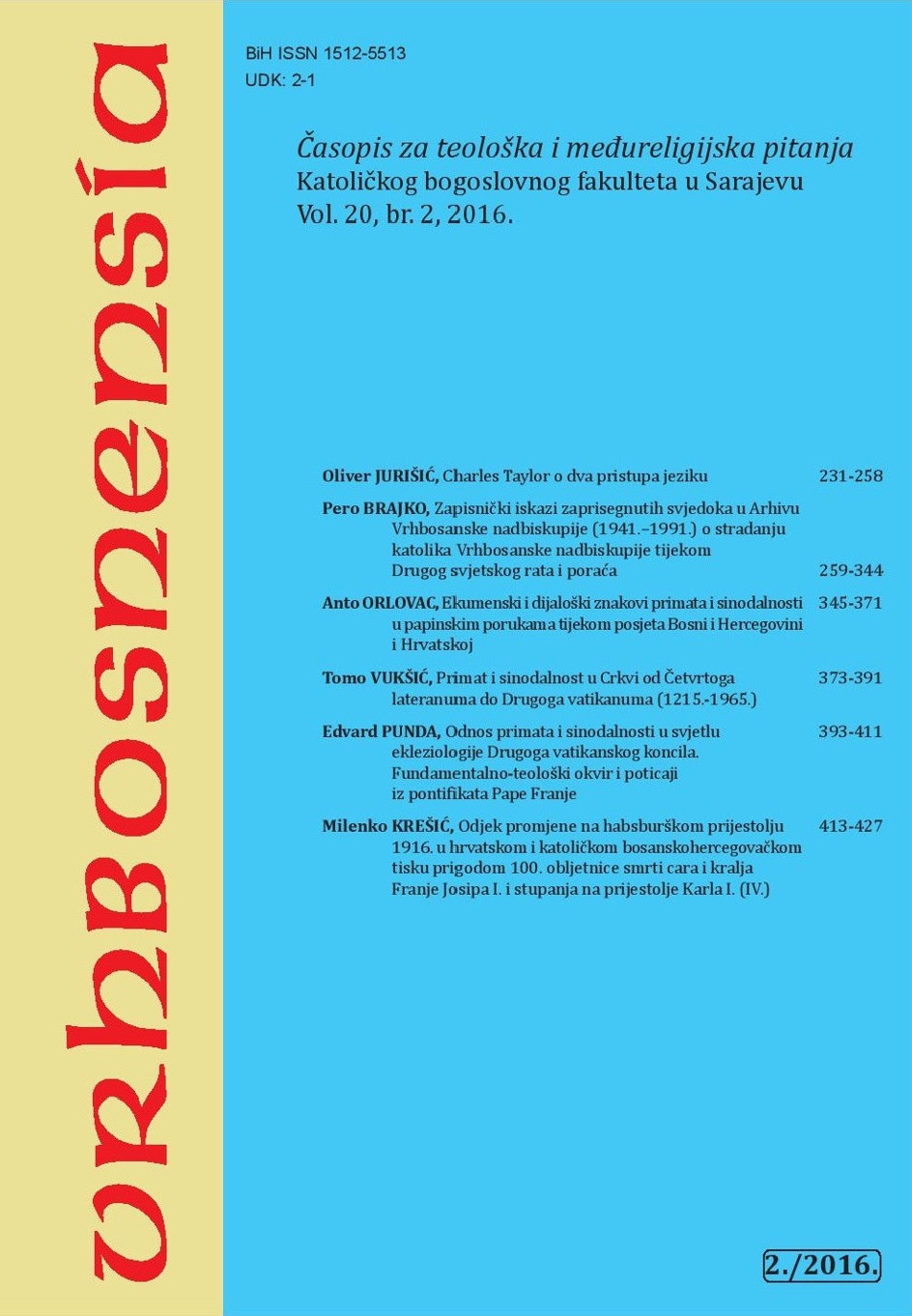Odnos primata i sinodalnosti u svjetlu ekleziologije Drugoga vatikanskog koncila. Fundamentalno-teološki okvir i poticaji iz pontifikata Pape Franje
Relation of Primacy and Synodality in the Light of the Second Vatican Council’s Ecclesiology. Fundamental-Theological Framework and Initiatives of Pope’s Francis’ Pontificate
Author(s): Edvard PundaSubject(s): History of Church(es), Post-War period (1950 - 1989), Biblical studies
Published by: Katolički bogoslovni fakultet
Keywords: Second Vatican Council ecclesiology; primacy; synodality; Pope Francis; paresia;
Summary/Abstract: The New Testament texts bear witness to the importance of the Twelve (the apostolic college or assembly of apostles) in the work that Jesus Christ began, and that continued according to His mandate (Cf., Matt 28:19-20). Equally, the primacy of Peter in the apostolic college is indisputable. He is the first, protos. From the very beginning of the Church, his role within the apostolic college and the role of the assembly of apostles with Peter as its head is important to the life of the Church. From their foundation, the apostles play one of the most important roles in the Church’s growth. Throughout history, this importance has continued in the role played by the successors of the apostles, where Peter’s successor has a specific role, as in the beginning. The religious dynamism of the early Church demonstrates that with the undeniable importance of the apostles, especially that of Peter, there is also an important role for the presbiteroi and in responding to questions of community life, the Church participates with them. Precisely from this dynamism, that emerges structurally from the essence of the Church as a community of God’s people, arises the question of the relationship between primacy (the reality of divine foundation) and synodality, as an expression of the Church as a community of God. In this article, these two realities are primarily considered in the context of the ecclesiology of the Second Vatical Council’s and the contribution of Pope Francis as a specific aspect of implementing this ecclesiology.
Journal: Vrhbosnensia
- Issue Year: 2016
- Issue No: 2
- Page Range: 393-411
- Page Count: 19
- Language: Croatian

